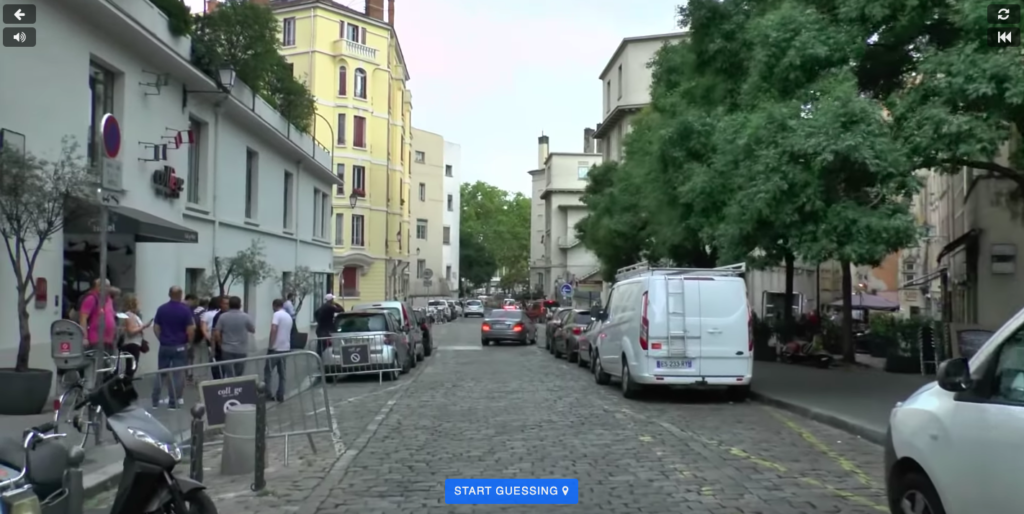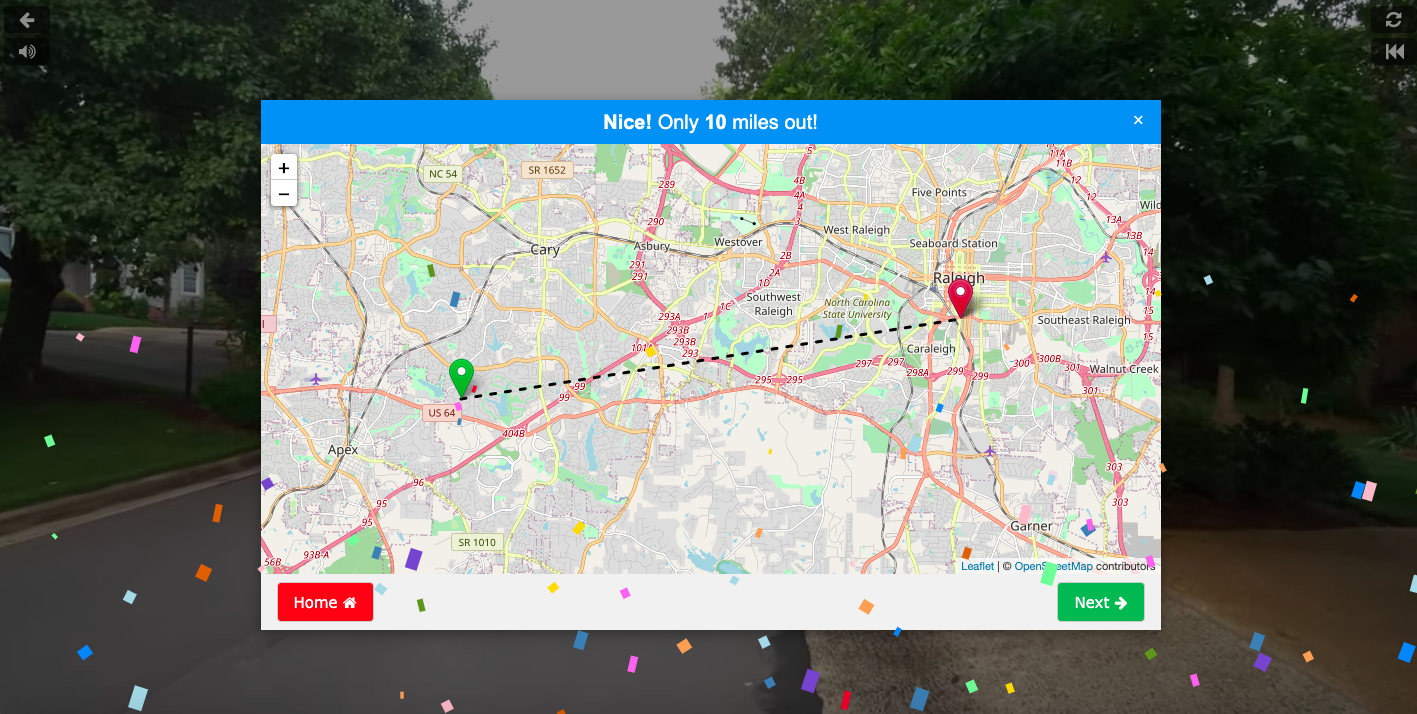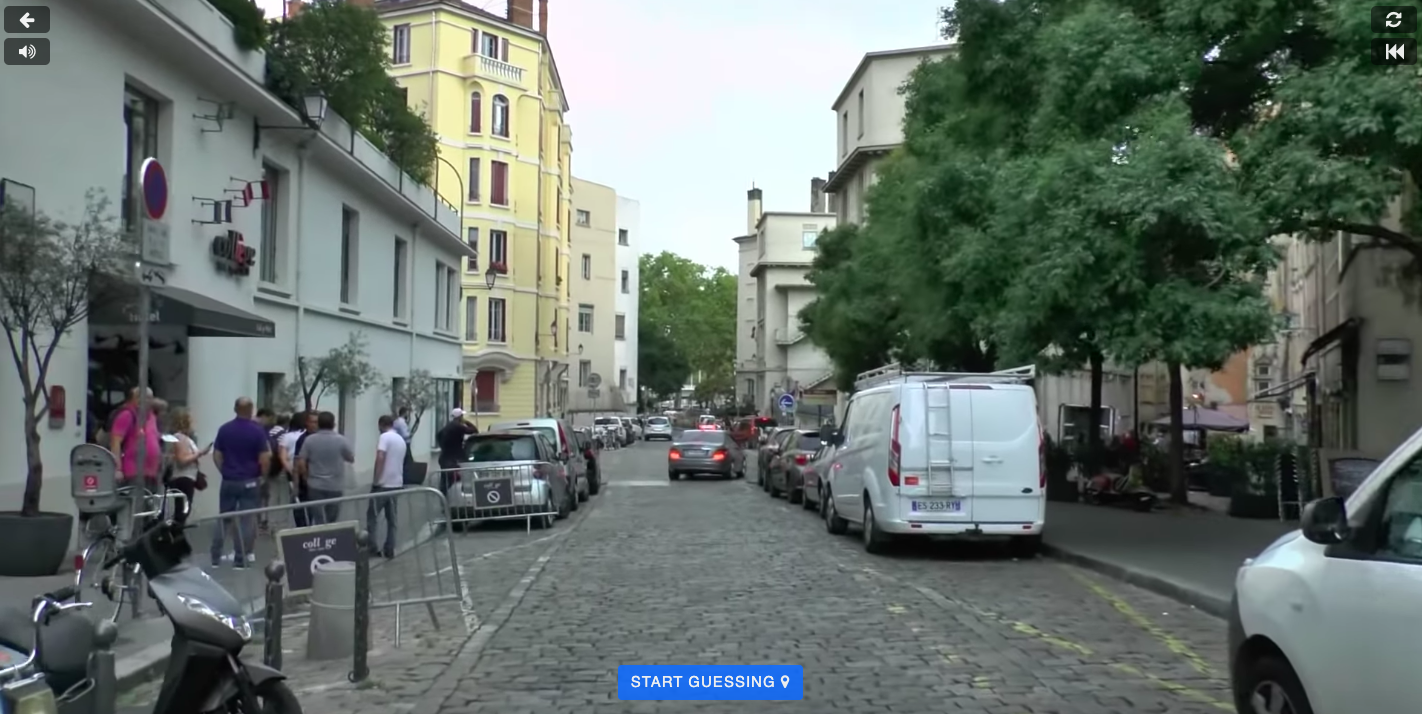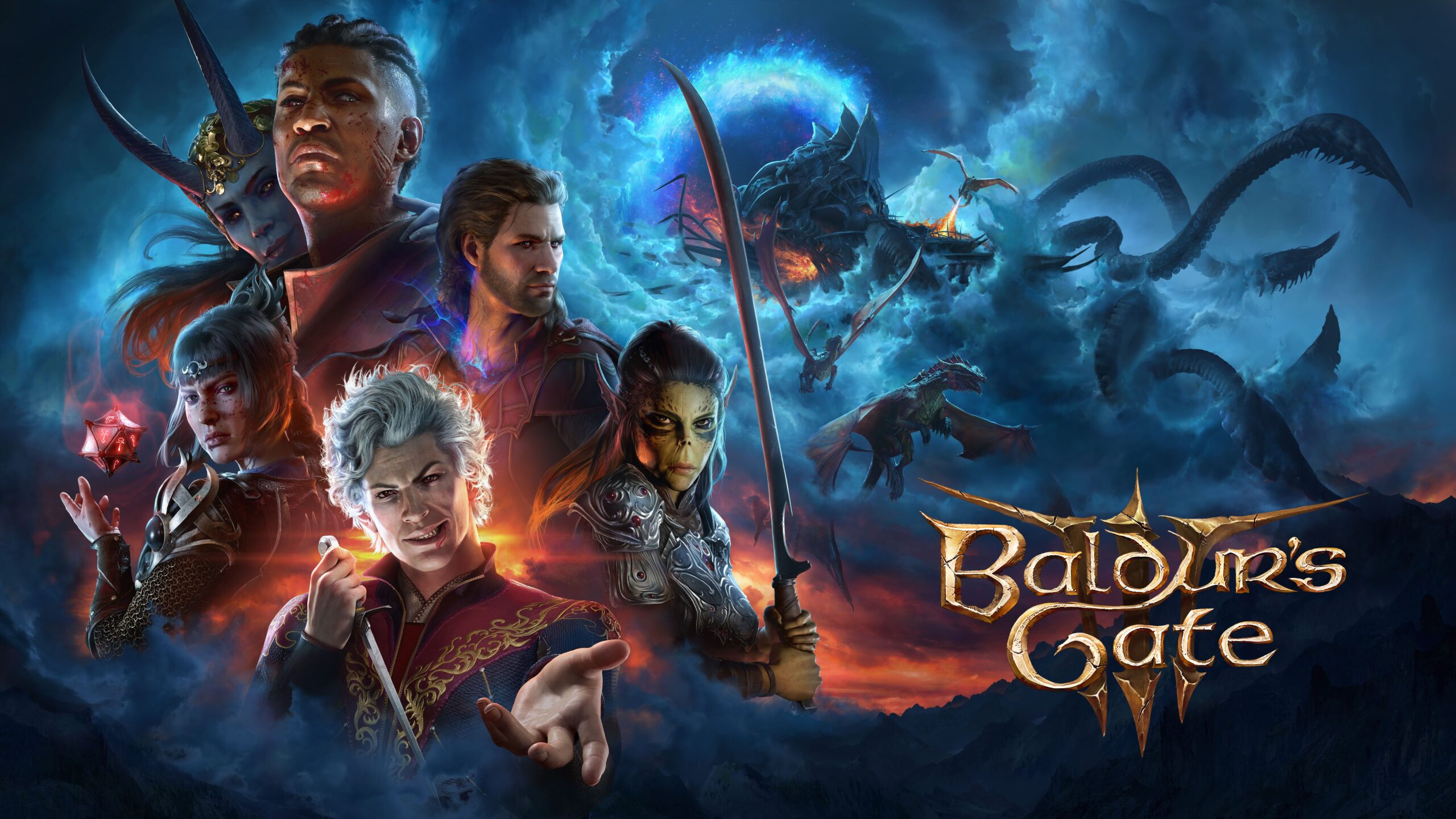
City Guesser: The Vicarious Joy of Walking Outside
Having grown up in a suburban area, I am enamored by large cities. When I walk the city streets of Philadelphia, New York City, or just about any metropolitan area on the globe, I am unusually enthralled by the idea of being part of a crowd. I desire to blend in and become a part of the texture that gives a city its unique identity. I had planned for 2020 to be a year for travel, visiting friends and loved ones while also taking the opportunity to get a taste of what makes their home city such a distinctive blend of humanity and infrastructure. Those 2020 plans came to a halt — but I’d like to think that I found the next best thing.
In the wake of lockdowns around the world, a programmer by the name of Paul McBurney Jr. created Virtual Vacation, a website that allows users to “help people experience the wonders of the world” from the comfort of their home. Virtual Vacation includes several features such as Walking Tour and Driving Tour, where users can choose a city to virtually explore through crowdsourced first-person videos. One component of Virtual Vacation gamifies this — City Guesser uses those same first-person videos, but you’ll have to use visual context clues and guess exactly what geographical location you’re in.
If that sounds familiar, then chances are that you’ve played GeoGuessr before — McBurney makes City Guesser’s inspiration no secret on his website. GeoGuessr, which emerged in 2013, utilized Google Street View, throwing you in either a random location or near a landmark, similarly having players guess what location they’re in. Recently, GeoGuessr has found a resurgence amongst some of my social circles as an activity for Zoom and Discord call parties.

I’ve spent much of quarantine in these long, nightly calls with friends, and one fascinating rabbit hole that one of my social circles fell in was watching first-person videos of roller coasters. These weren’t videos of just the coasters themselves, but also videos detailing the length and experience of waiting in line. These videos existed long before lockdowns, and they still highlight our desire to live something through someone else’s eyes when the opportunity is not available. It was only natural that we would eventually turn this into a proper game, with GeoGuessr play sessions naturally coming soon after.
What makes GeoGuessr — and City Guesser by extension — so appealing is the lack of curation and design, an unusual compliment that probably wouldn’t be reserved for any traditional video game. Then again, this is far from a “traditional” video game. Any mystery game has to make its clues evident and detectable; there is usually only one way to go about solving it, one path to take where everything you need to find is easy enough to spot. But since these geography-focused games throw you in a random spot, there are several visual elements that players can choose to focus on.
Take any GeoGuessr level in the United States — you’re more than likely to get plopped in a rural area or a suburban community of some sort. There are obvious visual clues to take advantage of: license plates, street signs, and advertisements with telephone numbers. Perhaps it is just the people I choose to roll with, but my friends and I are hyper fixated on the nuances. We look at the trees, the soil, the architectural home styles, and even the stucco and roofing on houses. It is strangely a thrilling game to be shared within a group of even moderately well-traveled friends.

City Guesser, by comparison, is simpler and streamlined, which I view as a strength compared to its source of influence. This game gives little to no control to you as the player — instead, you are beholden to the movement of the cameraperson, with all clues limited to whatever they point at with their lens. Other than a button letting you skip back a few seconds, City Guesser feels more like an on-rails theme park ride. But despite the lack of interactivity, there is a trade here that I think pays off.
By giving these locations movement and sound, City Guesser is more inviting due to its sensory appeal. You can imagine yourself walking through these streets using a video as your surrogate, and it hits both the purpose of GeoGuessr in providing you the necessary visual clues while also fulfilling Virtual Vacation’s promise of experiencing a place from afar. You move through crowds and listen to the ambiance of cars and other assorted city noises. My friends and I in one session found ourselves in what was distinctly New Orleans — a street performance and a gathering crowd of tourists were helpful hints in this case. But what made the moment magical is that we could tell we were in New Orleans not simply because it looked like New Orleans, but because it also felt like New Orleans.
Every subsequent round in a new location always begins with audible awe-ing from me and my friends, as we take a few seconds to bathe in the atmosphere. And these aren’t even intensely professional videos you would see in a Netflix nature documentary — these are probably just taken from a hobbyist with a DSLR or a smartphone at the very least. It’s that vicarious feeling of walking at the ground level, looking up at the cityscapes and structures, and processing all of the new visual details that come in every passing moment.

Once while playing City Guesser with that roller coaster-loving Discord group, the game landed us in Castro Street in San Francisco, and one of us instantly recognized the area. We listened to them squeal in delight and recall stories and memories relating to buildings and landmarks the camera would pass by — we ended up just leaving the video on until it looped, taking in the distinct culture and queerness of the area, heightened by the sentiment we heard expressed. That vicarious view was enhanced, as we were able to use our friend’s first-hand memories to project ourselves onto that street.
The phenomenon of watching an experience through someone else’s eyes isn’t new — it’s the same principle as reaction videos or unboxing videos, in a sense. But when you apply this to a distinct location, whether that be a bustling metropolitan square or a semi-popular thrill ride, something like City Guesser is able to unlock our memories and desires. Certainly, being restricted to travel to these places is intensifying this feeling of desire and nostalgia. And it’s okay to miss it — everyone does. By gamifying this longing and emulating our memories of a normal life, City Guesser allows us a platform to trade stories of our travels, reminisce of normalcy, and revel in all the sensations of locations, familiar or otherwise. Travel is intangible and impractical, but that sense of place never dies.





